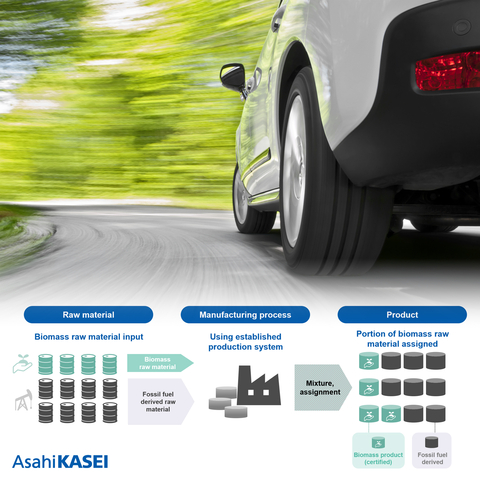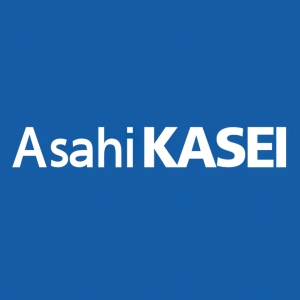Asahi Kasei Starts Selling BR and S-SBR Made Using the Mass-balance Method
— Toward achievement of sustainability —

Asahi Kasei has gained a strong reputation for its high-performance grades of S-SBR that are optimal for eco-friendly tires with excellent fuel efficiency and wear resistance characteristics. (Photo: Business Wire)
Asahi Kasei has gained a strong reputation for its high-performance grades of S-SBR that are optimal for eco-friendly tires with excellent fuel efficiency and wear resistance characteristics. In order to further contribute to reduced CO2 emissions, Asahi Kasei will manufacture and sell S-SBR made using the mass-balance method with raw material derived from biomass and plastic waste along with other raw material.
There is also growing demand for reduced environmental burden in various other applications, including requests to decarbonize. For these applications, Asahi Kasei will similarly manufacture and sell BR made using the mass-balance method.
Asahi Kasei aims to be a sustainable partner for its customers through the manufacture and sale of these products, while reducing GHG emissions from manufacturing at each plant and contributing to reduced burden on the global environment.
1 In the case of a mixture of sustainable raw materials and fossil fuel-derived raw materials in the production process, the portion of sustainable product produced is assigned to certain products based on ISCC PLUS System Documents and its recognized management methods.
2 ISCC (International Sustainability and Carbon Certificate) is an international certification system that offers solutions for the implementation and certification of waste and residue raw materials, non-bio renewables and recycled carbon materials and fuels. ISCC PLUS is a certification system that covers mainly bio-based carbon materials which are produced outside of the EU and supplied globally, and to manage and ensure sustainable raw materials in the supply chain.
About Asahi Kasei
Asahi Kasei is also dedicated to sustainability initiatives and is contributing to reaching a carbon-neutral society by 2050. To learn more, visit https://www.asahi-kasei.com/sustainability/.
View source version on businesswire.com: https://www.businesswire.com/news/home/20221117005040/en/
E-mail: AKA-info@ak-america.com
Company
Fringsstrasse 17, 40221 Düsseldorf
Tel: +49 (0) 211-3399-2058
E-mail: sebastian.schmidt@asahi-kasei.eu
Source:







